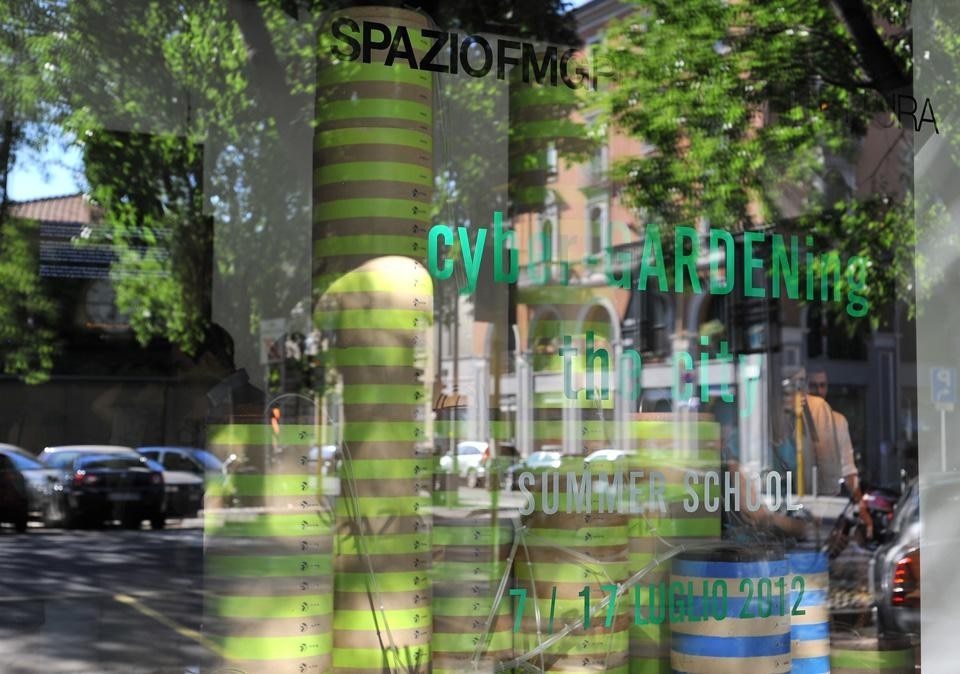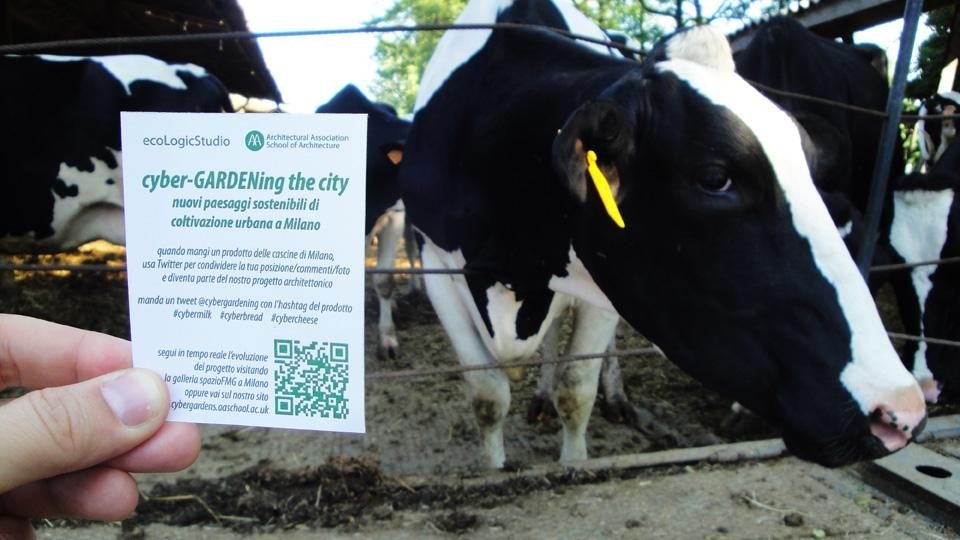CyberGardening the City, the Architectural Association's Visiting School in Milan, codirected by Claudia Pasquero and Marco Poletto of ecoLogicStudio, architects and teachers at the AA, was held this summer at the Spazio FMG per l'Architettura. In this ten-day workshop, 25 international students went to Milan's Parco Sud to research five very different farms (cascine), talking with farmers and exploring their landscapes and facilities. Their motives and agenda were to create new systemic models imagining new agro-urban prototypes — an eco-architecture to help facilitate new urban cultural patterns that strengthen, and are strengthened by agricultural values and practice.
There are multiple scenarios to consider: firstly, agriculture within the city, more traditionally in the peripheral areas and in abandoned industrial spaces (as evidenced in the contemporary reinvention of Detroit). Milan also needs a better relationship with its surrounding smaller towns. So ecoLogicStudio's focus is timely. "Maybe the new urbanity — the fourth scenario — is where the boundary of the city will disappear in the countryside and the countryside becomes part of the city", Luigi Nefasto, one of the participating students, feels. The culminatory roundtable with Stefano Boeri (architect, urban planner and Milan's Councillor of Culture, Fashion and Design), Aldo Cibic (architect founder of Cibic & Partners), Matteo Gatto (Director of the thematic areas of Milan EXPO), Richard Ingersoll (Professor of Architectural History at Syracuse University in Florence), Luca Molinari (Director of Spazio FMG), Pasquero, Poletto and myself drew to Spazio FMG a good audience of locals, including one of the farmers and media representatives. The debate brought home just how applicable this design approach could be to other global scenarios in which there is a need to bond farming cultures and the city, as well as to Milan.
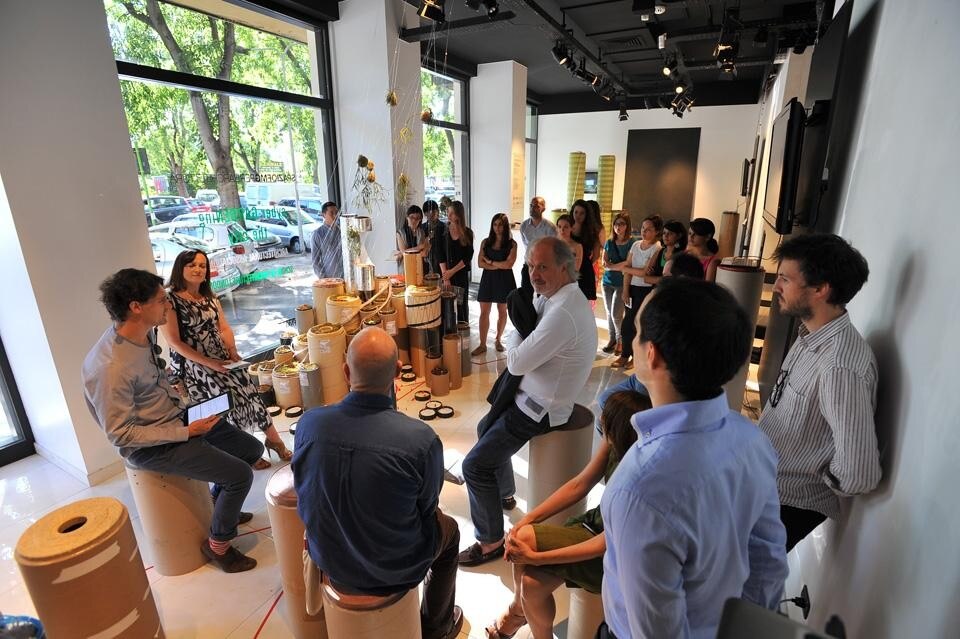
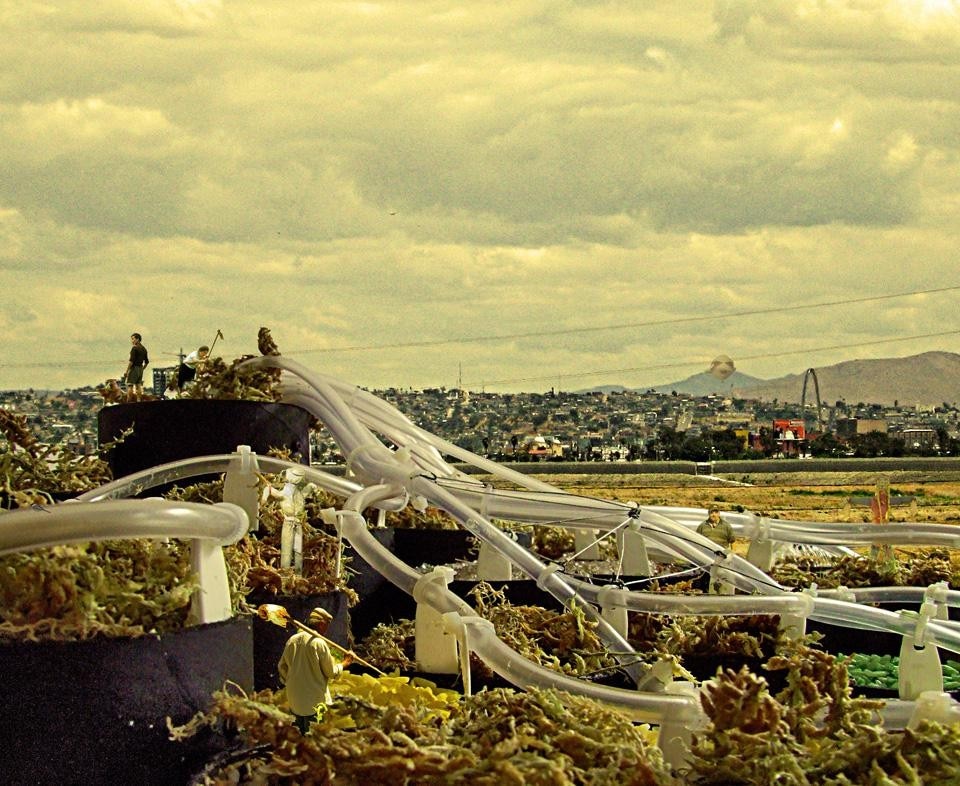
For their research and development the students undertook digital mapping through a self-devised interface based on Twitter
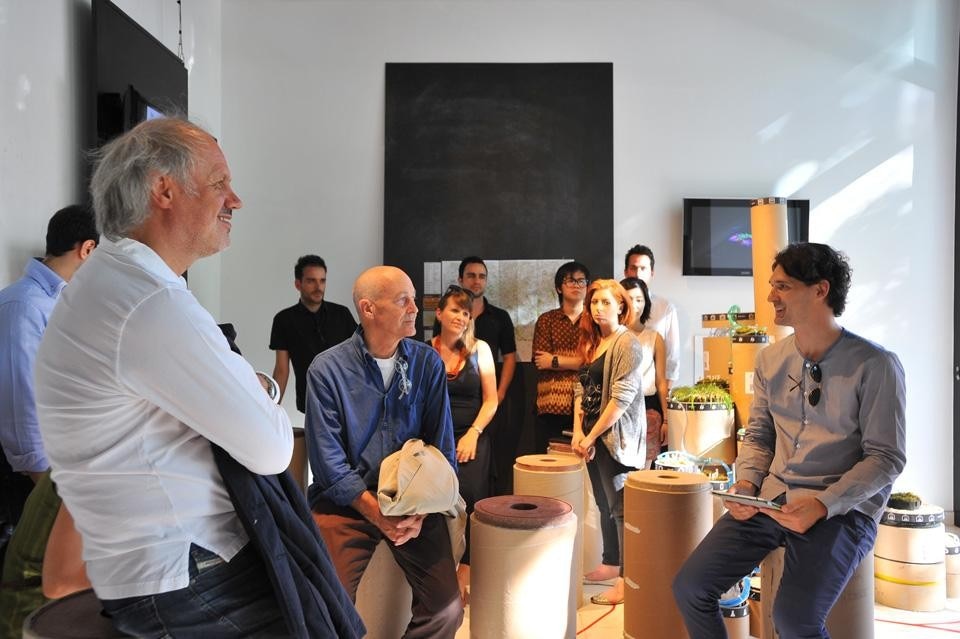
Tutors: Andrea Bugli, Lucy Bullivant, Immanuel Koh
Scientific Committee: Luca Molinari and Simona Galateo
Students:
cyberRicotta: Andre Figueiredo (Brazil), Katie McClure (UK), Luigi Nefasto (Italy), Jonathan Sutanto (Indonesia), Ismet Hakan Yarman (Turkey), Hyunjin Yoo (South Korea)
cyberFrisona: Amaia Arana (Spain), Elena Fadeeva (Russia), Monisha Prakash (India), Melanie Sugiarti (Indonesia), Beatriz Villahoz Herrero (Spain)
cyberCereal: Anita Halim (Indonesia), Daria Sheveleva (Russia), Patricia Silva Ojea (Spain), Khushboo Sonigera (India), Victoria Eugenia Soto Maga¡n (Spain)
